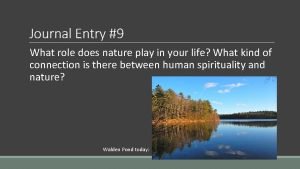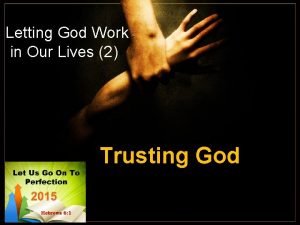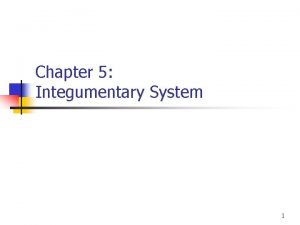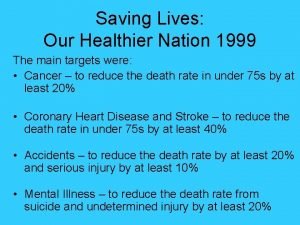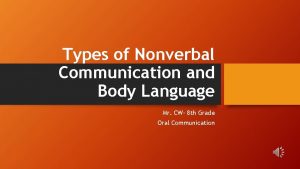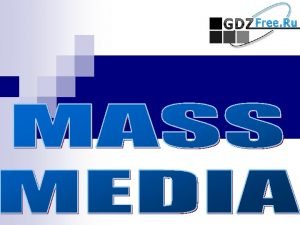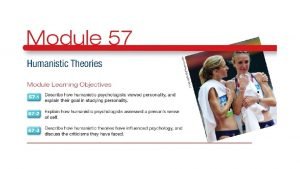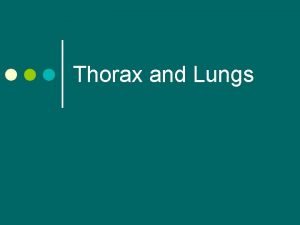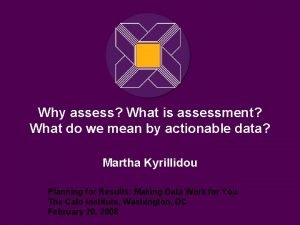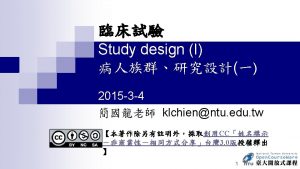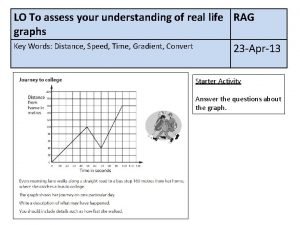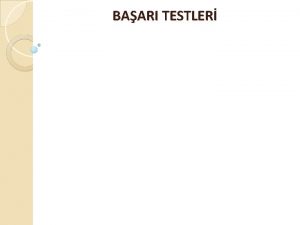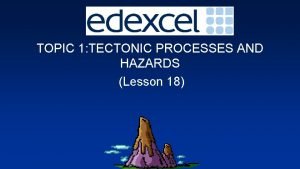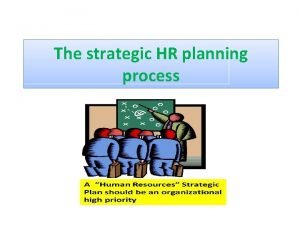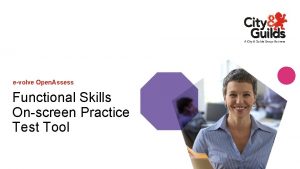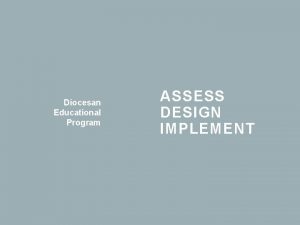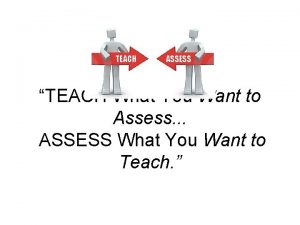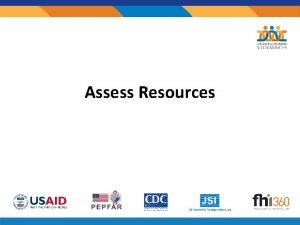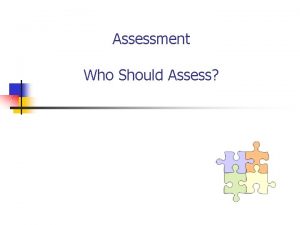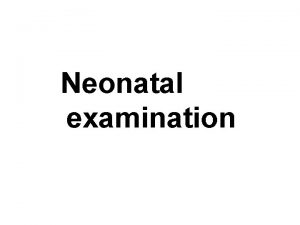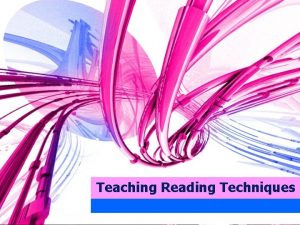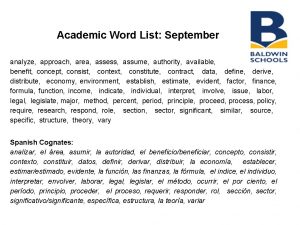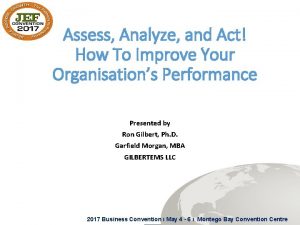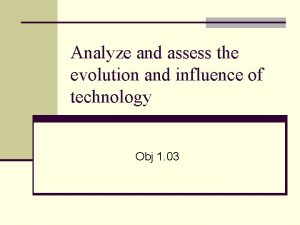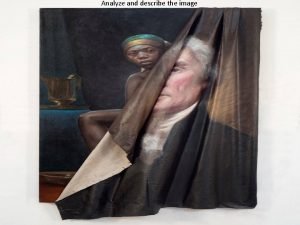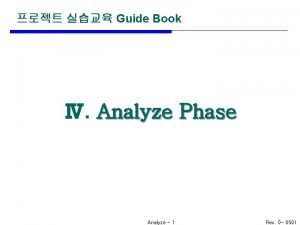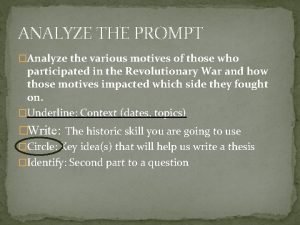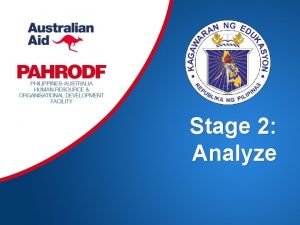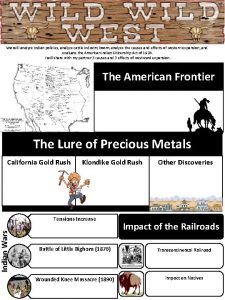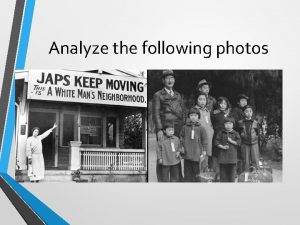on our lives Assess our teaching lives Analyze























- Slides: 23


on our lives � Assess our teaching lives � Analyze our answers � Refocus our goals � Perceptions of our lives in a larger context Context: your teaching or living environment � Reflect

1 � Goals � Actions � Feelings Cameron, J. (2016). The artist's way. Penguin. Outside circle = 100% Inside circle = 0%

1

on our lives � Assess our teaching lives �Think about stakeholders in our context �Answer questions about stakeholders & context Context: your teaching or living environment � Reflect 2

2 � Self � Teaching Team � Students � Student’s Support Team

Assess your teaching context. Answer any questions (about any/all stakeholders) that you want on paper. Be ready to share in a small group.

� Bourdieu (next slide) � Mutant Pedagogies Jones, S. , & Woglom, J. F. (2017). On � Lewis et al mutant pedagogies: Seeking justice and � Kramsch drawing change in teacher education. Springer. Lewis, C, Enciso, P, and E Moje (Eds. ). (2007). Reframing sociocultural research on literacy: Identity, agency, and power, 48. New York: Routledge. Kramsch, C. 1993. Context and Culture in Language Teaching. Oxford: Oxford University Press. R E S O U R C E S

Brown, N. , & Szeman, I. (Eds. ). (2000). Pierre Bourdieu: fieldwork in culture. Rowman & Littlefield. Several chapters online free https: //books. google. co. kr/books? hl=en&lr=&id=Bsa. Vc. VUg q. DEC&oi=fnd&pg=PR 9&dq=bourdieu%27 s+capital&ots=rj e. At 0 gt. RB&sig=l. O 6 Knu. NKOW 47 etzsf. Bng 34_7 yc#v=onepage&q=bourdieu's%20 c apital&f=false Smart, A. (1993). Gifts, bribes, and guanxi: A reconsideration of Bourdieu's social capital. Cultural anthropology, 8(3), 388 -408. See recent cites https: //anthrosource. onlinelibrary. wiley. com/doi/abs/10. 152 5/can. 1993. 8. 3. 02 a 00060 Reay, D. (2004). Gendering Bourdieu's concepts of capitals? Emotional capital, women and social class. The Sociological Review, 52(2_suppl), 57 -74. See recent cites http: //journals. sagepub. com/doi/abs/10. 1111/j. 1467954 X. 2005. 00524. x Couldry, N. (2004). Media meta-capital: Extending the range of Bourdieu’s field theory. In After bourdieu (pp. 165 -189). Springer, Dordrecht. Investigate this for digital lit https: //link. springer. com/chapter/10. 1007%2 F 1 -4020 -25890_8 Morrow, V. (2001). Young people’s explanations and experiences of social exclusion: retrieving Bourdieu’s concept of social capital. International journal of sociology and social policy, 21(4/5/6), 3763. Compares to Putnam's definition https: //www. emeraldinsight. com/doi/abs/10. 1108/01443330 110789439 Smith, P. H. (2018). The paradox of higher vocational education: the teaching assistant game, the pursuit of capital and the self. Educational Review, 70(2), 188 -207. Cool to do a similar study here in Korea of EFL teachers https: //www. tandfonline. com/doi/abs/10. 1080/00131911. 20 17. 1294148 R E S O U R C E S

SOCIAL What are your social networks? Where is reciprocity clearly in play? How is trust built into your relationships? What is thought to be valuable? How is the value expressed? What is the (un)official authority in your environment? Authority Who is served by your Decisions & Actions? How is your (home) culture in play with your (work) culture? What are your Competencies, Skills and Qualifications? ASSETS Culture Value 2 POWER

� Kinds of capital �Symbolic B-L ING O Capital �Cultural Capital v Economic Capital �Social Capital The habitus – refers to the lifestyle, the values, the dispositions and the expectations of particular social groups. https: //www. historylearningsite. co. uk/sociology/education-and-sociology/pierre-bourdieu/ My In thi spirat s. W i ork on fo sho r p D E F I N E

� Who is served by your �Decisions �Actions � How WHO? is your (home) culture in play with your (work) culture? D E F I N E

� Stakeholder �Competencies �Skills �Qualifications � What is the (un)official authority in your environment? � What is thought to be valuable? How is the value expressed? D E F I N E

� What are your social networks? � Where is reciprocity clearly in play? � How is trust built into your relationships? � Are you cooperating, collaborating or compromising in your networks? � How often are you motivated by serving the ‘common good’? D E F I N E

on our lives � Assess our teaching lives �Think about stakeholders in our context �Answer questions about stakeholders & context � Analyze �Where our answers is the power in my context? �What kind of interaction occurs in my context? �How are stakeholders performing their identity? Context: your teaching or living environment � Reflect 3

3 � Where STA SIS problems nc e i mba la is the power in my context? � What kind of interaction occurs in my context? (agency) � How are stakeholders performing their identity?

on our lives � Assess our teaching lives � Analyze our answers � Refocusing our goals � Perceptions of our lives in a larger context Context: your teaching or living environment � Reflect 4

4 � Prep/Marking � Teaching � Admin � Research � PD

4 How can you bring balance to your practice?

5 How do you perceive yourself in your work and professional field?

on our lives � Assess our teaching lives � Analyze our answers � Refocusing our goals � Perceptions of our lives in a larger context Context: your teaching or living environment � Reflect 5

on our lives � Assess our teaching lives �Think about stakeholders in our context �Answer questions about stakeholders & context � Analyze our answers �Where is the power in my context? �What kind of interaction occurs in my context? �How are stakeholders performing their identity? � Refocusing our goals � Perceptions of our lives in a larger context Context: your teaching or living environment � Reflect 1

1 � Maria Lisak � Koreamaria. typepad. com/gwangju � http: //koreamaria. typepad. com/gwangju/20 18/07/july 2018 seoulworkshop. html
 Journal entry
Journal entry God's work in our lives
God's work in our lives Drawing the power of jesus christ in our lives
Drawing the power of jesus christ in our lives During our lives, we produce three kinds of hair:
During our lives, we produce three kinds of hair: Our healthier nation 1999
Our healthier nation 1999 Volleyball 6 word memoirs
Volleyball 6 word memoirs Energy in our daily lives
Energy in our daily lives Tissue poem context
Tissue poem context Eye contact is woven into the fabric of our daily lives.
Eye contact is woven into the fabric of our daily lives. The mass media play an important part in our lives
The mass media play an important part in our lives Scale down teaching
Scale down teaching Humanistic psychologists may assess personality by
Humanistic psychologists may assess personality by Percussion of anterior thorax
Percussion of anterior thorax Why assess
Why assess Permuted block randomization
Permuted block randomization Site:slidetodoc.com
Site:slidetodoc.com Real life graphs
Real life graphs Eşleştirme sorusu
Eşleştirme sorusu Tectonic hazard profile
Tectonic hazard profile Aat secure assess
Aat secure assess Hr planning process
Hr planning process Assess your understanding
Assess your understanding City and guilds open assess
City and guilds open assess How to assess alert and oriented
How to assess alert and oriented
